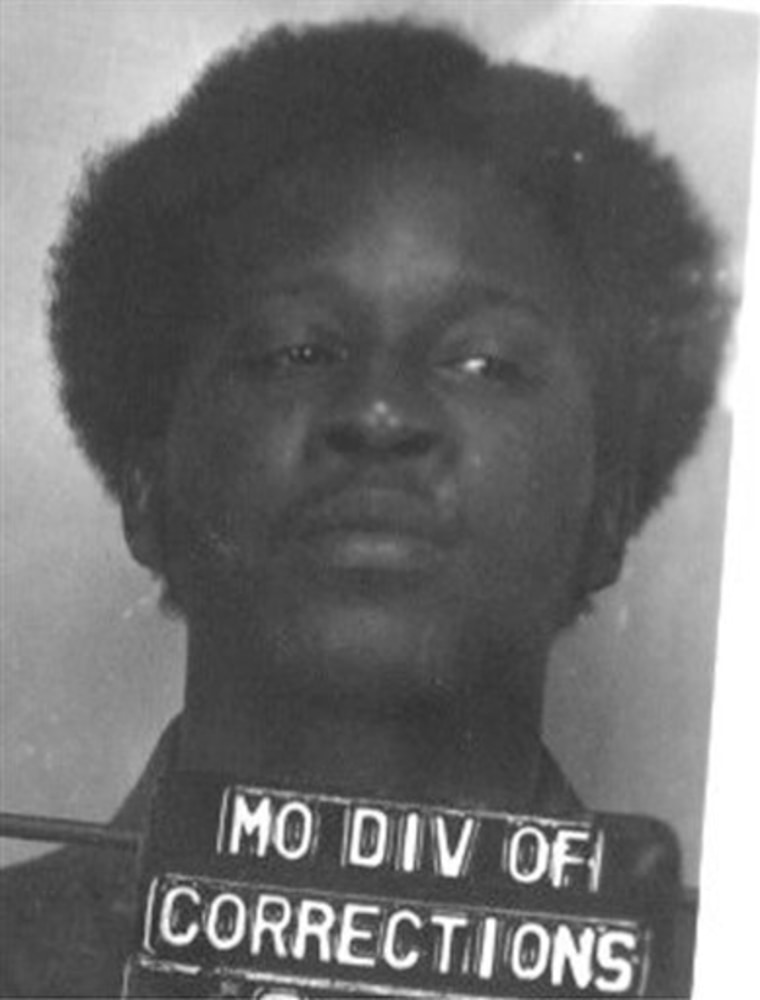To the very end, convicted killer Larry Griffin shouted his innocence to the world — through court filings, in pleas to the governor and to nearly any reporter willing to listen.
None of it helped. Griffin, strapped to a white gurney, was executed by injection.
Now, 12 years later, St. Louis' chief prosecutor will soon release a report offering an opinion on whether Missouri put an innocent man to death.
The report, two years in the making, has no legal weight but could have a powerful effect on the nation's death penalty debate. Nearly 1,100 people have been executed in the United States in the modern era that began with Gary Gilmore's death by firing squad in Utah in 1977, and not one has been proved innocent after the fact.
A finding of innocence could confirm what capital punishment foes have been arguing for years: that the risk of a grave and irreversible mistake by the criminal justice system is too high to allow the death penalty.
Nevertheless, the findings in the Griffin case may not settle the argument over whether he committed the crime. His guilt or innocence hinges not on DNA or other powerfully persuasive forensic evidence, but on witness accounts.
In the years since his 1981 conviction, two crucial witnesses have recanted or wavered, and a third witness who could have helped Griffin never took the stand, for reasons that are unclear.
Activists watch closely
"We're watching this very closely," said David Elliot, a spokesman for the National Coalition to Abolish the Death Penalty in Washington. "We really feel it is incumbent for the government to prove that Larry Griffin was guilty. If they can't do that, maybe it's time for Missouri to step back, have a moratorium, study the death penalty system, and see what can be done to prevent this tragedy from happening again."
Griffin was convicted in the 1980 drive-by shooting of 19-year-old Quintin Moss in St. Louis. Authorities said he had a motive: Moss, a drug dealer and alleged hit man, had been accused of killing Griffin's older brother six months earlier. They also had a witness identifying Griffin as the passenger in the 1968 Chevy Impala who fired the 13 shots that struck Moss.
Gordon Ankney, who prosecuted Griffin, said he remains confident in Griffin's guilt.
"I tried probably 60 homicide cases and a number of those were capital murder cases," said Ankney, now in private practice. "I'd have to say this case was as strong as any of them. There's nothing wrong with the evidence or the witnesses in this case."
Griffin's constant court filings kept him alive for 14 years after he was convicted. He asked then-Gov. Mel Carnahan for clemency, writing, "I pray you find out the truth before long or otherwise I will surely be executed for something I just did not do."
A day before Griffin's execution in 1995, an Associated Press reporter asked the 40-year-old condemned man if he committed the crime.
"I did not!" he responded. "If I'm going to be punished for something, it ought to be for something I did."
Professor got case investigated
It would be 10 years before a report by University of Michigan law professor Sam Gross offered concerns compelling enough to prompt the investigation by the St. Louis city prosecutor's office.
The testimony of Robert Fitzgerald was crucial because no other eyewitnesses or physical evidence linked Griffin to the killing. At an appeal hearing in 1993, however, Fitzgerald recanted, saying police coerced him into fingering Griffin by showing him only one picture, of Griffin, and saying, "We happen to know who did it," according to Gross' report.
Fitzgerald also testified in the 1993 hearing that after seeing Griffin in court, he was no longer sure he was the man in the car. Meanwhile, Fitzgerald's long history of fraud convictions and other run-ins with the law raised concerns about his trustworthiness.
Fitzgerald's story was given credence at Griffin's trial by Michael Ruggeri, the first police officer to arrive on the scene. Though Ruggeri's initial report made no mention of Fitzgerald, he testified that he arrived to find Fitzgerald tending to the gravely wounded Moss.
In comments to Gross and to reporters in recent years, Ruggeri said his testimony was incorrect, and that he did not see Fitzgerald at the crime scene. Others who were nearby — including Moss' sister — told Gross they also didn't see Fitzgerald, who would have stood out as a white man in a mostly black area.
Ruggeri did not have a listed phone number and efforts to reach him through attorneys were unsuccessful.
Wounded man never testified
The Gross report also raised the question of why Wallace Conners was never called to testify by either the prosecution or the defense. Conners was near Moss at the time of the killing and was shot in the buttocks. He said he got a good look at the killer. Conners had known Griffin for years and told Gross he was certain Griffin was not the shooter.
Rachel Smith, a city prosecutor, has led a team of three attorneys and two homicide detectives who interviewed 80 people, including police officers, drug dealers and prostitutes.
Smith said she will turn in the report to St. Louis' chief prosecutor, Jennifer Joyce, by the end of the week. They said the report would be released to the public soon afterward.
Smith said reopening the investigation of a crime that occurred a quarter of a century ago was difficult, but added: "There's a degree in which you can be very comfortable with your results."
Missouri law provides for compensation for men and women who spend time in prison for wrongful convictions. But Corrections Department spokesman Brian Hauswirth said he is unaware of any provision for compensating families of those wrongfully put to death.
